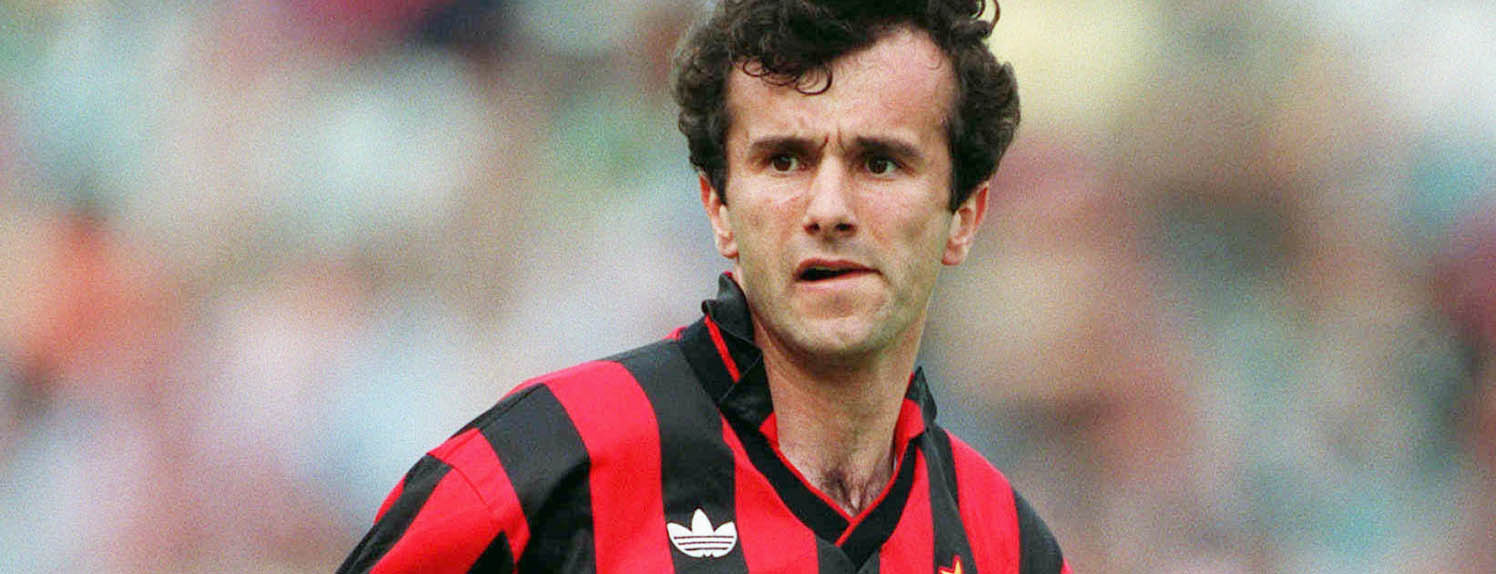
Savićević

Dejan was one of the superstars in the 90s and is regarded as one of the greatest Montenegrin and Yugoslav footballers of all-time. Savicevic is part of the legendary AC Milan that won everything and built dreams for millions around the world. At the time when the Serie A was THE league to be, AC Milan built his fantastic history, regrouping all major stars and filling trophy rooms.
After beginning his professional career with hometown Budućnost Titograd in Yugoslavia, Savićević moved to the more established Yugoslav First League club Red Star Belgrade in 1988 where he became prominent part of the team that won the 1990–91 European Cup—coming second in the 1991 Ballon d’Or voting—before making a big money transfer to Italian champions A.C. Milan in 1992. With Milan, he won three Serie A titles and the 1993–94 UEFA Champions League, among other trophies. He later returned to Red Star for half a season in 1999, before ending his career with Rapid Wien in 2001.

When Dejan Savicevic arrived in Italy for the 1992-93 season, Serie A was in its pomp. It boasted some of the best players in the world and without doubt the arrival of Savicevic further enhanced the reputation of the league.
Savicevic’s destination was AC Milan, to bolster an already talent laden squad. With Red Star Belgrade, he had won three Yugoslav championships, one European Cup and one Intercontinental cup (the prelude to the FIFA World Club Cup). In 1991, he was runner up in the Ballon d’Or behind another Milan purchase, Jean-Pierre Papin.
Berlusconi was in love with him and absolutely wanted to make sure he would succeed.
Van Basten was in the process of having a year’s sabbatical to recover from his ankle injury (alas a futile attempt as this injury proved career ending) while Gullit and Rijkaard left to Sampdoria and Ajax respectively. Thus Savicevic, Boban, and Papin became the only foreigners in the squad for the first part of the season. While Savicevic struggled domestically, he excelled on the European scene.

“Even after we left, Milan achieved great results in Italy and in Europe with Ancelotti. Players like Shevchenko, Seedorf, Inzaghi and Nesta have made the history of Milan. And after them came great players like Ibrahimovic and Thiago Silva. Milan have had many, many crazy players. I would have liked to have played with Kakà, Ibra and Sheva.”
Over the next two seasons, the Montenegrin’s playing time gradually diminished and he would eventually leave the club for an ill-fated return to Red Star Belgrade. Although short stay in Milan, he definitely marked the club and fans memories around the world.

“It was a wonderful experience, Milan is a good memory. I was lucky enough to be in the great Milan that always won. We were the strongest. For this reason, the years at Milan are the best memories of my career.”
At the international level, he represented Yugoslavia at the 1990 and 1998 FIFA World Cups and, after retiring from playing, coached the Serbia and Montenegro national team from 2001 until 2003.

Following an illustrious professional playing career that lasted 18 seasons, as well as a short and unsuccessful head coaching stint during the early 2000s, he has turned to administrative matters—becoming, during the summer of 2004, the president of the Montenegrin FA.
He is considered one of the best players in the world during the 1990s, and is regarded as one of the greatest Montenegrin and Yugoslav footballers of all-time. During his time in A.C. Milan, he was nicknamed Il Genio (The Genius) by the Italian sports press.
Savićević was a classic number 10 who preferred functioning in a free role as a playmaker; throughout his career, he was usually deployed in an attacking midfield role, either in a central position behind the striker(s), or out wide on the wings, on either flank, due to his ability to provide crosses to teammates in the area from the left wing, or cut into the center onto his stronger left foot from the right.

At the international level, he represented Yugoslavia at the 1990 and 1998 FIFA World Cups and, after retiring from playing, coached the Serbia and Montenegro national team from 2001 until 2003.
He finished his career at Rapid Vienna, happy in his free role and devoid of any defensive responsibilities.
Join us in celebrating a maestro.
Be a TENLEGEND
